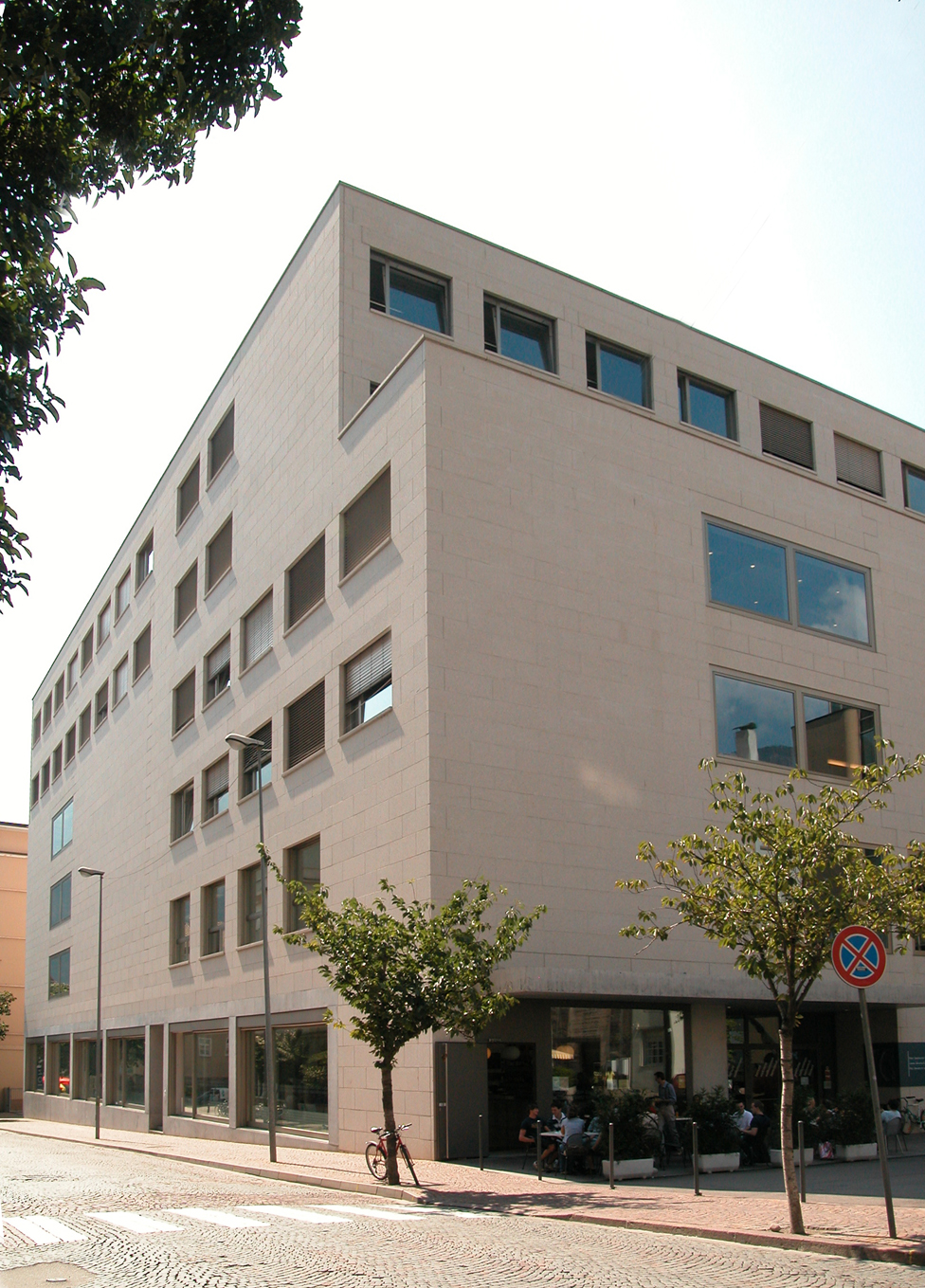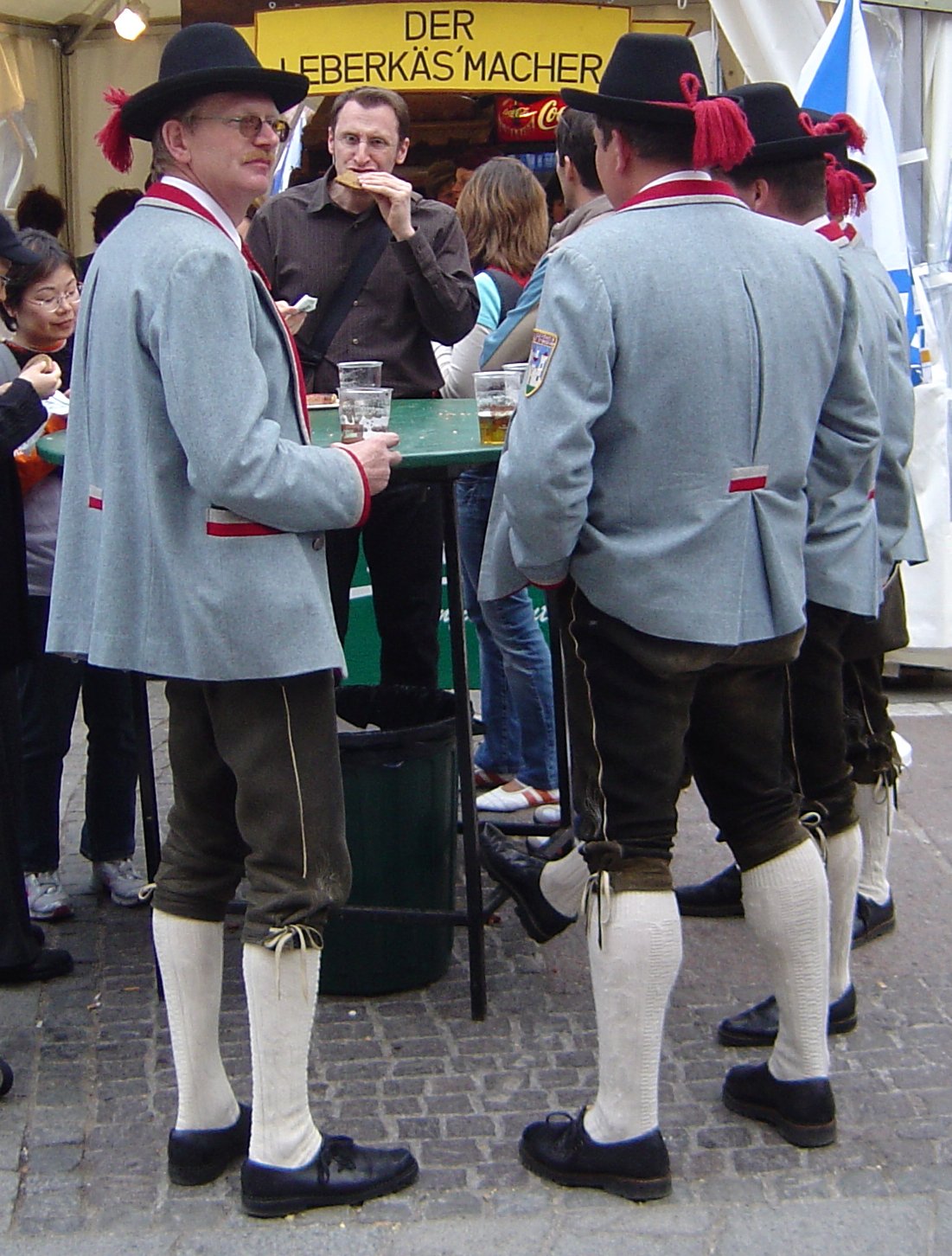|
Bozner Blutsonntag
Bozner Blutsonntag (German for Bozen Bloody Sunday) refers to the events of 24 April 1921 in Bozen (Italian Bolzano). It was the first climax of fascist violence in South Tyrol, a German-speaking province that was annexed by Italy after World War I. Events On 24 April 1921, a referendum was held in the part of Tyrol still belonging to Austria regarding the Anschluss to the German Reich. The fascists, who at that time were a paramilitary group involved in thuggery throughout Italy, considered the coincidental opening of the Bozen Spring Fair on the same day as a provocation connected with the plebiscite. They decided to disrupt the traditional costume procession (Trachtenumzug) through Bozen. Despite warnings, the Italian authorities did not take any security measures to protect the local populace. In the morning of 24 April 1921, about 290 fascists from the rest of Italy arrived at the Bozen railway station and united with about 120 supporters of the fascist movement fr ... [...More Info...] [...Related Items...] OR: [Wikipedia] [Google] [Baidu] |
Marling, South Tyrol
Marling (; it, Marlengo ) is a ''comune'' (municipality) in South Tyrol in northern Italy, located about northwest of Bolzano. Geography As of the year 2017, it had a population of 2,710 and an area of .All demographics and other statistics: Italian statistical institute Istat. Marling borders the following municipalities: Tscherms, Algund, Lana, Merano and Partschins. History Coat-of-arms The shield is argent a fess azure and a gules rampant lion. These are the arms of the Lords of ''Marling'' who lived in two castles in the village until 1426. The emblem was adopted in 1966. Society Linguistic distribution According to the 2011 census, 86.41% of the population speak German, 13.41% Italian and 0.17% Ladin Ladin may refer to: * Ladin language, a language in northern Italy, often classified as a Rhaeto-Romance language *Ladin people, the inhabitants of the Dolomite Alps region of northern Italy See also *Laden (other) * Ladino (disambigua ... as first l ... [...More Info...] [...Related Items...] OR: [Wikipedia] [Google] [Baidu] |
1921 In Italy
Events from the year 1921 in Italy. Kingdom of Italy *Monarch – Victor Emmanuel III (1900–1946) *Prime Minister – *# Giovanni Giolitti (1920–1921) *# Ivanoe Bonomi (1921–1922) *Population – 39,943,528 Events In 1921 Fascist and anti-Fascist violence in Italy grew with Italian army officers beginning to assist the Fascists with their violence against communists and socialists. With the Fascist movement growing, anti-fascists of various political allegiances combined into the ''Arditi del Popolo'' (People's Militia). January * January 21 – The Communist Party of Italy ( it, Partito Comunista d’Italia, PCd'I) is founded in Livorno, following a split in the Italian Socialist Party at their 17th congress. February * February 28 – A fascist squad devastates the ''Camera del lavoro'' in Triest. Shortly afterwards the Milanese branch of the socialist newspaper ''Avanti!'' is burned down. April * April 26 – A fascist squad devastates the ''C ... [...More Info...] [...Related Items...] OR: [Wikipedia] [Google] [Baidu] |
History Of South Tyrol
Modern-day South Tyrol, an autonomous Italian province created in 1948, was part of the Austro-Hungarian County of Tyrol until 1918 (then known as ''Deutschsüdtirol'' and occasionally ''Mitteltirol''). It was annexed by Italy following the defeat of the Central Powers in World War I. It has been part of a cross-border joint entity, the Euroregion Tyrol-South Tyrol-Trentino, since 2001. Before the 19th century Antiquity In 15 BC the region was conquered by the Roman commanders Drusus and Tiberius, and its northern and eastern parts were incorporated into the provinces of Raetia and Noricum respectively, while the southern part including the lower Adige and Eisack valleys around the modern-day city of Bolzano up to present-day Merano and Waidbruck (''Sublavio'') became part of Roman Italy (''Italia''), Regio X ''Venetia et Histria''. The mountainous area then mainly was a transit country along Roman roads crossing the Eastern Alps like the Via Claudia Augusta, settled by ... [...More Info...] [...Related Items...] OR: [Wikipedia] [Google] [Baidu] |
Conflicts In 1921
Conflict may refer to: Arts, entertainment, and media Films * ''Conflict'' (1921 film), an American silent film directed by Stuart Paton * ''Conflict'' (1936 film), an American boxing film starring John Wayne * ''Conflict'' (1937 film), a Swedish drama film directed by Per-Axel Branner * ''Conflict'' (1938 film), a French drama film directed by Léonide Moguy * ''Conflict'' (1945 film), an American suspense film starring Humphrey Bogart * ''Catholics: A Fable'' (1973 film), or ''The Conflict'', a film starring Martin Sheen * ''Judith'' (1966 film) or ''Conflict'', a film starring Sophia Loren * ''Samar'' (1999 film) or ''Conflict'', a 1999 Indian film by Shyam Benegal Games * ''Conflict'' (series), a 2002–2008 series of war games for the PS2, Xbox, and PC * ''Conflict'' (video game), a 1989 Nintendo Entertainment System war game * '' Conflict: Middle East Political Simulator'', a 1990 strategy computer game Literature and periodicals * ''Conflict'' (novel) ... [...More Info...] [...Related Items...] OR: [Wikipedia] [Google] [Baidu] |
Free University Of Bozen-Bolzano
The Free University of Bozen-Bolzano (Italian language, Italian: ''Libera Università di Bolzano'', German language, German: ''Freie Universität Bozen'', Ladin language, Ladin: ''Università Liedia de Bulsan'') is a university primarily located in Bolzano, South Tyrol, Italy. It was founded on 31 October 1997 and is organized into five faculties with courses taught in German, Italian, and English. Campus The university has three campuses: in Bolzano, Brixen and Bruneck. The buildings in Bolzano were designed by the architects Matthias Bischoff and Roberto Azzola of Zürich and those in Brixen by Regina Kohlmeyer and Jens Oberst from Stuttgart. The latter won the 9th architecture prize of the city of Oderzo in 2005. Rectors Previous rectors of the university were Luxembourg economist Alfred Steinherr (1998 - 2003), Swiss Linguistics, linguist Rita Franceschini (2004 - 2008), and German sociologist Walter Lorenz (2008 - 2016). Italian engineer Paolo Lugli has been the re ... [...More Info...] [...Related Items...] OR: [Wikipedia] [Google] [Baidu] |
Nazism
Nazism ( ; german: Nazismus), the common name in English for National Socialism (german: Nationalsozialismus, ), is the far-right totalitarian political ideology and practices associated with Adolf Hitler and the Nazi Party (NSDAP) in Nazi Germany. During Hitler's rise to power in 1930s Europe, it was frequently referred to as Hitlerism (german: Hitlerfaschismus). The later related term "neo-Nazism" is applied to other far-right groups with similar ideas which formed after the Second World War. Nazism is a form of fascism, with disdain for liberal democracy and the parliamentary system. It incorporates a dictatorship, fervent antisemitism, anti-communism, scientific racism, and the use of eugenics into its creed. Its extreme nationalism originated in pan-Germanism and the ethno-nationalist '' Völkisch'' movement which had been a prominent aspect of German nationalism since the late 19th century, and it was strongly influenced by the paramilitary groups that emerged af ... [...More Info...] [...Related Items...] OR: [Wikipedia] [Google] [Baidu] |
Benito Mussolini
Benito Amilcare Andrea Mussolini (; 29 July 188328 April 1945) was an Italian politician and journalist who founded and led the National Fascist Party. He was Prime Minister of Italy from the March on Rome in 1922 until his deposition in 1943, and "Duce" of Italian Fascism from the establishment of the Italian Fasces of Combat in 1919 until his execution in 1945 by Italian partisans. As dictator of Italy and principal founder of fascism, Mussolini inspired and supported the international spread of fascist movements during the inter-war period. Mussolini was originally a socialist politician and a journalist at the ''Avanti!'' newspaper. In 1912, he became a member of the National Directorate of the Italian Socialist Party (PSI), but he was expelled from the PSI for advocating military intervention in World War I, in opposition to the party's stance on neutrality. In 1914, Mussolini founded a new journal, ''Il Popolo d'Italia'', and served in the Royal Italian Army durin ... [...More Info...] [...Related Items...] OR: [Wikipedia] [Google] [Baidu] |
Giovanni Giolitti
Giovanni Giolitti (; 27 October 1842 – 17 July 1928) was an Italian statesman. He was the Prime Minister of Italy five times between 1892 and 1921. After Benito Mussolini, he is the second-longest serving Prime Minister in Italian history. A prominent leader of the Historical Left and the Liberal Union, he is widely considered one of the most powerful and important politicians in Italian history; due to his dominant position in Italian politics, Giolitti was accused by critics of being an authoritarian leader and a parliamentary dictator. Giolitti was a master in the political art of ''trasformismo'', the method of making a flexible, centrist coalition of government which isolated the extremes of the Left and the Right in Italian politics after the unification. Under his influence, the Liberals did not develop as a structured party and were a series of informal personal groupings with no formal links to political constituencies. The period between the start of the 20th century ... [...More Info...] [...Related Items...] OR: [Wikipedia] [Google] [Baidu] |
Tracht
''Tracht'' () refers to traditional garments in German-speaking countries and regions. Although the word is most often associated with Bavarian, Austrian, South Tyrolian and Trentino garments, including lederhosen and dirndls, many other German-speaking peoples have them, as did the former Danube Swabian populations of Central Europe. Name The word "Tracht" comes from the verb "tragen" (to carry or wear); thus the derived noun "Tracht" means "what is worn". So "Tracht" can refer to the clothes which are worn. The noun also has other uses deriving from the verbal meaning, e.g. a load, a device for carrying a load on the shoulders, or the load of honey carried in by the bees). It also appears within the German idiom "eine Tracht Prügel" (a ''load'' (of) beating or, alternately, "a good beating"). "Tracht" is commonly used to refer the way of dressing associated with a particular people group (''Volkstracht''), social class or occupation (''Arbeitstracht''). Most often it refers ... [...More Info...] [...Related Items...] OR: [Wikipedia] [Google] [Baidu] |






